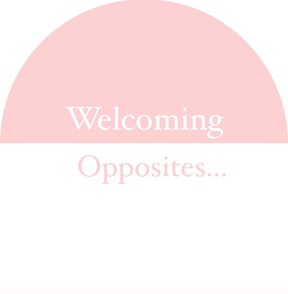Yesterday I got offered a new job. It’s exciting because it’s kind of my dream job, but also because my current position has become almost unbearable and I’ve been looking for a new job for over six months. After a lifetime as an entrepreneur, I landed in a large bureaucracy. I think I was brought into the position to build the program, but after the game plan was created, and the players were put on the field, I stood on the sidelines bored and uninspired, counting goals and watching for fouls. Not my jam.
I’m 54 years old. The wisdom that comes with living this long gives me access to understanding, after two years, instead of ten, that being a cog in a wheel is not who I am. It never was and it never will be.
My new job is working with entrepreneurs, essentially bringing them into a community of other small businesses. If you bring it down to the brass tacks, I’m a salesperson, selling something that I truly love and believe in. I did this for twenty years when I owned my yoga studio. I sold memberships to people to pay my rent, my teachers, my utilities, my taxes, and myself. I loved the creativity of this work — figuring out how to appeal to people, building relationships, creating community.
At my third interview for my new job, one of the panelists asked me, “What would you say is a superpower necessary for this role?” I hate those kinds of interview questions. Throwing the interviewee into confusion, they seem designed to invite stupid, irrelevant answers because they are so far from what anyone has actually prepared for the interview.
But this time I was lucky. A thought popped into my mind right away. “The person in this role,” I said confidently, “would need to have a rejection deflector shield.” Feeling like, at that point, I had nothing to lose, I went on to share how my partner calls me a golden retriever.
I am like a golden retriever because I always go back for more. Like a golden retriever, I’m a little bit dumb and very enthusiastic. This has been a painful character trait in many ways. My poor partner has watched me over the years pining for unattainable outcomes with friends and family.
With friendships that have changed or family relationships that are marinating in dysfunction, she’s watched me trying tirelessly to fix them. Like a golden retriever, I bring my slobbery ball to said person’s feet and drop it over and over and over again, never seeming to get the message that they don’t want to play.
But this same drop the ball and wait attitude has served me well in other areas. During this time of struggle in my current job, I must have applied for fifty positions, some of which I was qualified for and others, a total stretch. But, being a little bit dumb and very enthusiastic, I’d keep trying, facing rejection after rejection.
I first got called a golden retriever when I joined a women’s soccer team in my early twenties. I had only played two years of soccer in high school and I was fit, but didn’t understand strategy and I had no learned skills. I played defense, and I struggled to keep my position on the back field. I’d chase the ball wherever it went, trying to get it away from the other team. One night after a game, as I berated myself for having no idea what I was doing on the field, a team mate lovingly said, “It’s okay. You’re like a golden retriever.”
My job search over the last many months has been frustrating. I’ve suffered feelings of insecurity that no one would want to hire me at my age. I’ve imagined myself stuck in my current position, wasting away, like the woman behind the window at the department of licensing.
It’s always been kind of a joke, a humorous slight that I’m like a golden retriever. There have been many times in my life that I’ve wanted to shed those character traits. But not anymore. I’m like a middle-aged golden retriever now. In dog years, I’d be between 8 and 9 years old, still active, but slowing down, and slightly less dumb. I’ve got several more good years and I’m very enthusiastic about what’s to come.
















